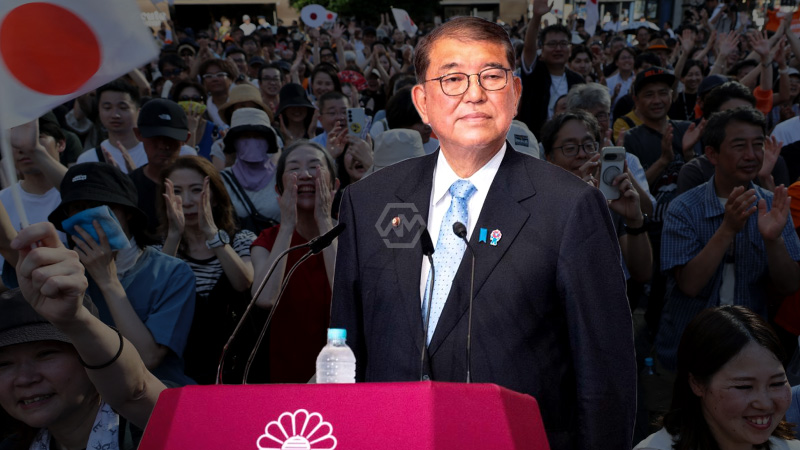- PM Shigeru Ishiba denies reports of resignation following election setback.
- Japan’s ruling LDP faces internal instability and external right-wing pressure.
- Trade deal with the U.S. influences Ishiba’s timing and political calculations.
Japanese Prime Minister Shigeru Ishiba has publicly refuted media claims that he is preparing to step down, calling the reports “completely unfounded.”
Still, internal sources suggest Ishiba may announce his resignation in early August after finalizing the deal with Washington. His potential departure, less than a year into his tenure, would spark a heated leadership battle within the LDP.
Japan’s Political Fault Lines Widen as PM Ishiba Fights to Remain in Power
Ishiba’s leadership has come under scrutiny not only because of the election results but also due to rising public dissatisfaction with economic stagnation and political inertia. The LDP’s failure to retain upper house dominance has raised concerns about its ability to pass crucial legislation without opposition support.
The emergence of Sanseito, a far-right party that expanded its representation from one to 14 seats, is reshaping Japan’s political narrative. Their populist platform—anti-immigration, lower taxes, and inflation relief—has resonated with voters disillusioned by the status quo, challenging the LDP’s traditional base.
A potential shift in leadership could have international ramifications. Takaichi’s alignment with former PM Shinzo Abe’s policies may raise investor concern over Japan’s fiscal direction, with MUFG Bank analysts warning that her premiership could intensify downward pressure on the yen by reinforcing ultra-loose monetary policies.
Meanwhile, opposition forces are calculating their own moves, hoping to leverage the LDP’s vulnerability. Any incoming prime minister will need to negotiate cross-party alliances to ensure basic legislative functionality, as immediate elections are unlikely due to public fatigue and political risk.
As Ishiba resists resignation pressures and Japan’s far-right gains ground, the country teeters on the edge of a leadership shift that could reshape its political and economic future.
“Power is not given, it is taken.” — Frank Underwood, House of Cards



